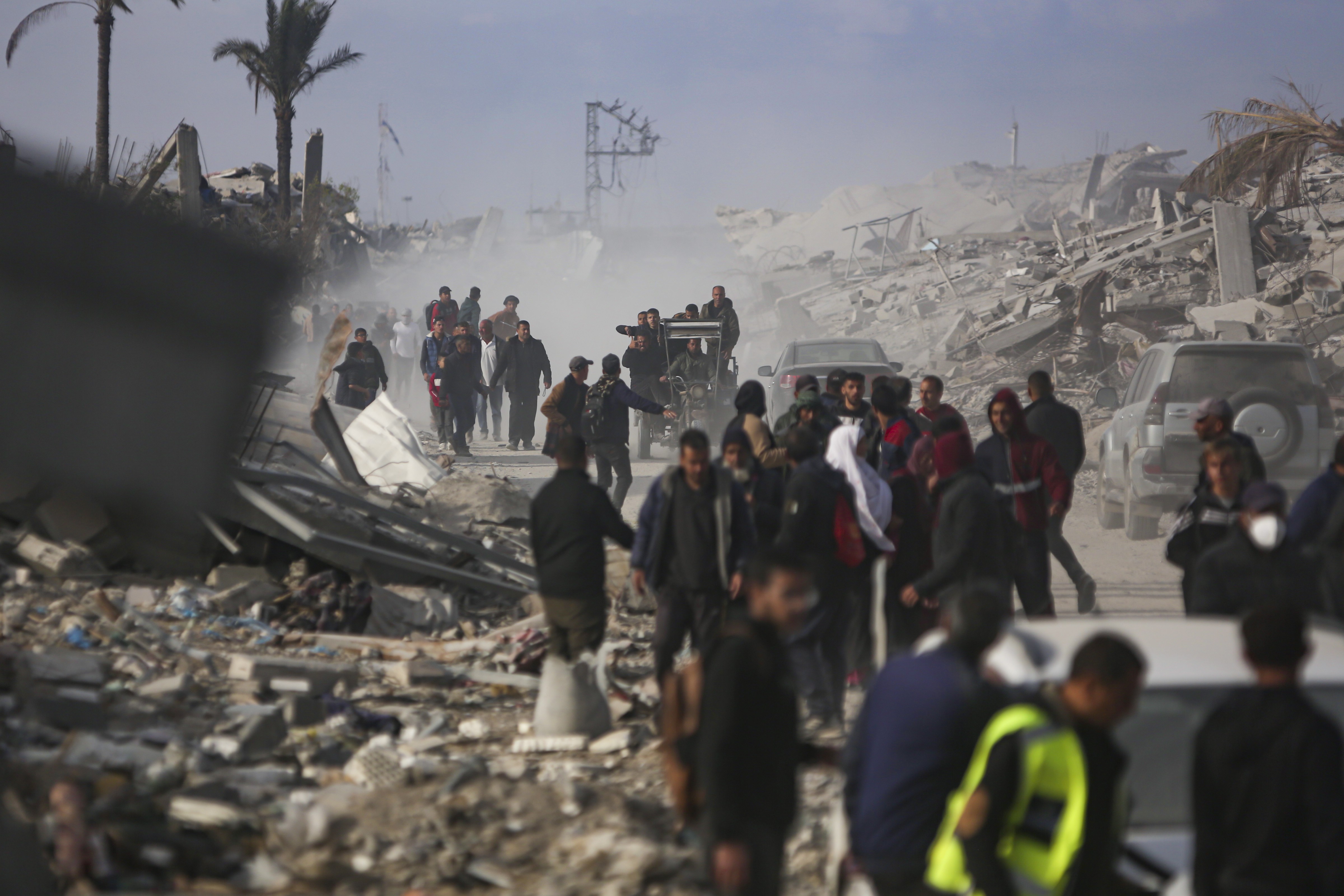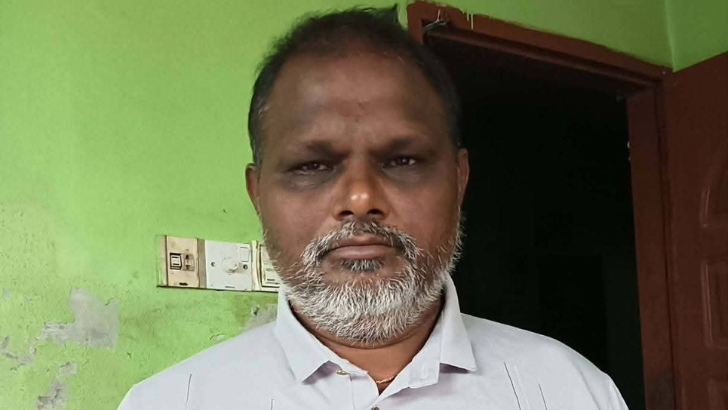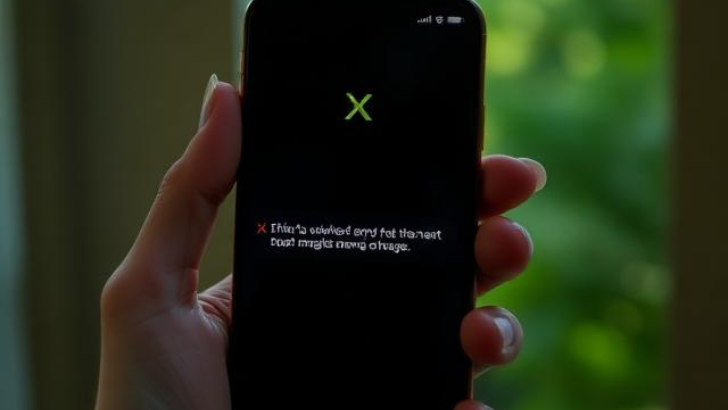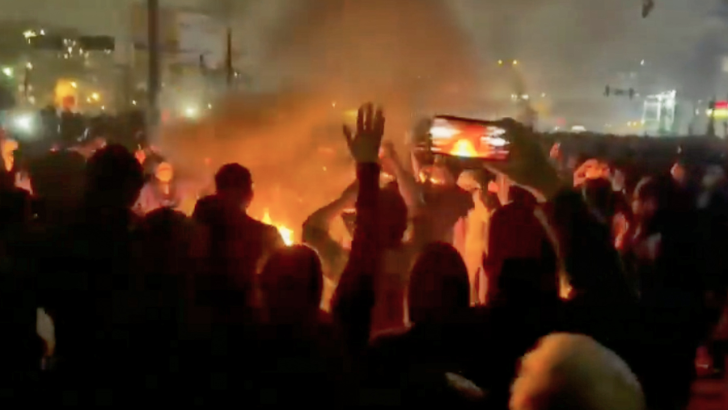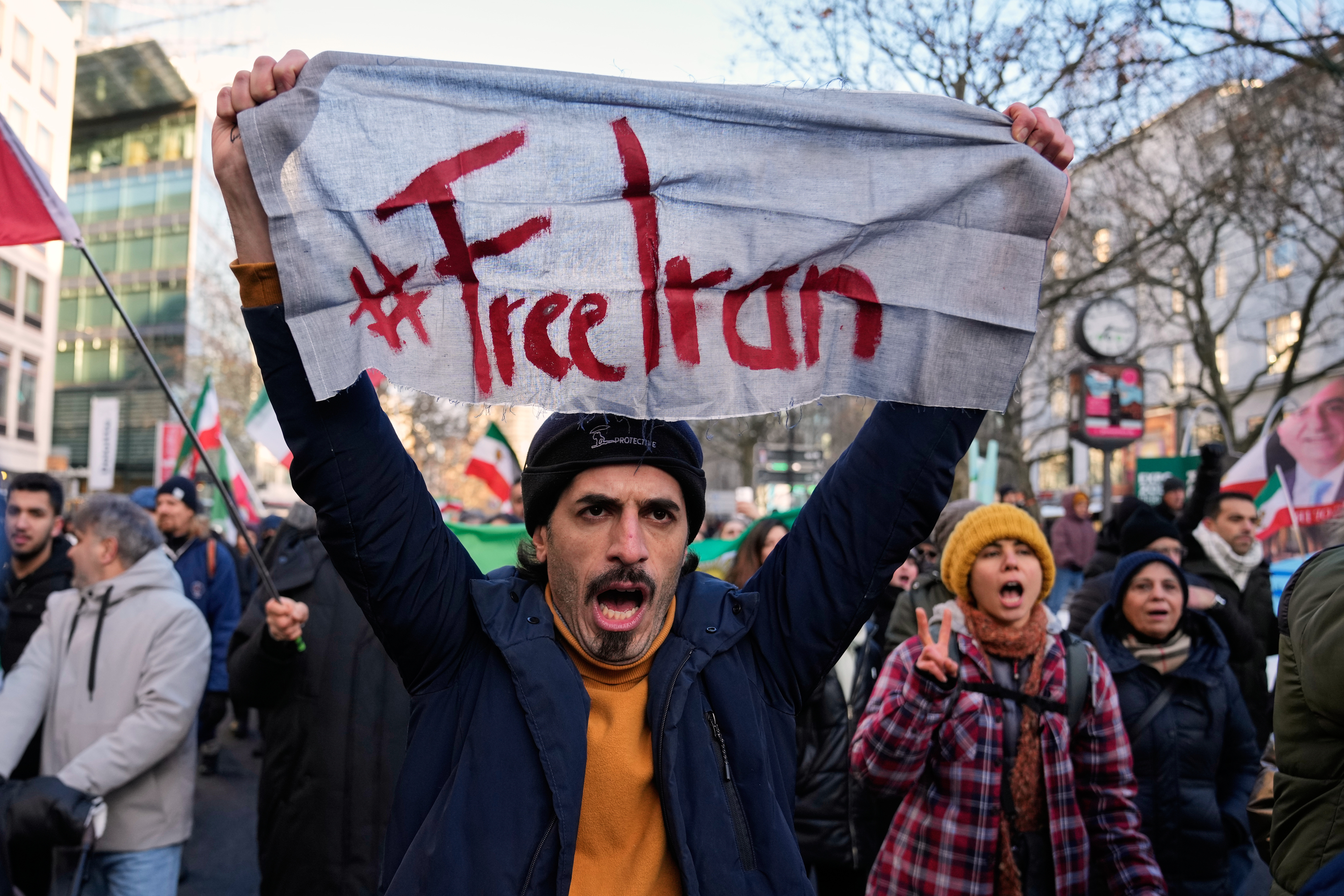Gaza ceasefire begins after nearly 3-hour delay as Hamas names hostages to be released Sunday
Israel had vowed to keep fighting until it received the names, as the long and uncertain process aimed at ending the war got off to a bumpy start.
PTI
-
Displaced Palestinians return to Gaza
DEIR AL-BALAH, 19 JAN
Israel had vowed to keep fighting until it received the
names, as the long and uncertain process aimed at ending the war got off to a
bumpy start.
Celebrations erupted across the war-ravaged territory and
some Palestinians began returning to their homes despite the delay, which
underscored the fragility of the agreement. The truce, which started at 11.15am local time, is a first step toward ultimately ending the conflict and
returning nearly 100 hostages abducted in the 7 October, 2023 Hamas attack that
triggered it.
Israeli media reported that Romi Gonen, 24, who was abducted
from a music festival and appeared on the Hamas list, is set to be released,
citing her brother's social media. Israel has not confirmed any of the three
names provided by Hamas, and the other two families have not yet commented.
Israeli Prime Minister Benjamin Netanyahu said earlier Hamas
had not lived up to its commitment to provide the names of the three hostages
it was set to release in exchange for scores of Palestinian prisoners. The
military said it would continue to attack targets in Gaza until the names were
provided.
An Israeli airstrike killed at least eight people in the
southern city of Khan Younis after the ceasefire was delayed. Nasser Hospital
confirmed the casualties from Sunday's strike, which it said had occurred
around two hours after the truce was supposed to take effect. Gaza's Health
Ministry reported another three deaths from strikes on Sunday in Gaza City.
Hamas had earlier blamed the delay in handing over the names
on “technical field reasons.” It said in a statement that it is committed to
the ceasefire deal announced last week.
The party of Israel's hard-line National Security Minister
Itamar Ben-Gvir meanwhile said its Cabinet ministers submitted their resignations
from the government on Sunday in opposition to the ceasefire. The departure of
the Jewish Power party weakens Netanyahu's coalition but will not affect the
ceasefire.
In a separate development, Israel announced that it had
recovered the body of Oron Shaul, a soldier who was killed in the 2014
Israel-Hamas war, in a special operation. The bodies of Shaul and another
soldier, Hadar Goldin, remained in Gaza after the 2014 war and had not been
returned despite a public campaign by their families.
Delay underscores fragility of the agreement
The planned ceasefire, agreed after a year of intensive
mediation by the United States, Qatar and Egypt, is the first step in a long
and fragile process aimed at winding down the 15-month war.
Netanyahu said he had instructed the military that the
ceasefire “will not begin until Israel has in its possession the list of
hostages to be freed, which Hamas committed to provide.” He had issued a
similar warning the night before.
The 42-day first phase of the ceasefire should see a total
of 33 hostages returned from Gaza and hundreds of Palestinian prisoners and
detainees released.
Israeli forces should pull back into a buffer zone inside
Gaza, and many displaced Palestinians should be able to return home. The devastated
territory should also see a surge in humanitarian aid.
This is just the second ceasefire in the war, longer and
more consequential than the weeklong pause over a year ago, with the potential
to end the fighting for good.
Negotiations on the far more difficult second phase of this
ceasefire should begin in just over two weeks. Major questions remain,
including whether the war will resume after the six-week first phase and how
the rest of the nearly 100 hostages in Gaza will be freed.
Palestinians celebrate despite delay
Across the Gaza Strip, celebrations erupted early Sunday as
people hoped for respite after 15 months of war that killed tens of thousands
and destroyed large areas of the territory. Masked militants appeared at some
of the celebrations, where the crowds chanted slogans in support of them,
according to Associated Press reporters in Gaza.
Gaza's Civil Defence, first responders who operate under the
Hamas-run government, held a parade in Gaza City, where the rescuers waved a
Palestinian flag alongside other revellers, according to AP footage, which also
showed a small group of people carrying the flags of Islamic Jihad, the second
largest militant group after Hamas, which took part in the 7 October attack.
The Hamas-run police began deploying in public after mostly
lying low due to Israeli airstrikes. Gaza City residents said they had seen
them operating in parts of the city, and the AP reporter in Khan Younis saw a
small number out on the streets.
Palestinian residents began returning to their homes in
parts of Gaza City early Sunday, even as tank shelling continued to the east,
closer to the Israeli border, overnight. Families could be seen making their
way back on foot, with their belongings loaded on donkey carts, residents said.
“The sound of shelling and explosions didn't stop,” said
Ahmed Matter, a Gaza City resident. He said he saw many families leaving their
shelters and returning to their homes. “People are impatient. They want this
madness to end," he said.
Reactions in Israel were more muted, as people hoped for the
safe return of the hostages but remained divided over the agreement.
Asher Pizem, 35, from the Israeli city of Sderot near Gaza,
said he eagerly awaited the return of the captives. But he said the deal had
merely postponed the next confrontation with Hamas and criticized Israel for
allowing aid into Gaza, saying it would contribute to the revival of the
militant group.
“They will take the time and attack again,” he said while
overlooking smoldering ruins in Gaza from a hillock in southern Israel with
others who had gathered there.
Israel's Cabinet approved the ceasefire early Saturday in a
rare session during the Jewish Sabbath, more than two days after mediators
announced the deal. The warring sides were under pressure from both the
outgoing Biden administration and President-elect Donald Trump to achieve a
deal before the US presidential inauguration on Monday.
The toll of the war has been immense, and new details on its
scope will now emerge.
Over 46,000 Palestinians have been killed, according to
Gaza's Health Ministry. The 7 October, 2023, Hamas-led attack on southern
Israel that sparked the war killed over 1,200. Hundreds of Israeli soldiers
have died.
Some 90 per cent of Gaza's population has been displaced.
The United Nations says the health system, road network and other vital
infrastructure have been badly damaged. Rebuilding – if the ceasefire reaches
its final phase – will take several years at least. Major questions about
Gaza's future, political and otherwise, remain unresolved.
Leave a Reply
Your email address will not be published. Required fields are marked *








